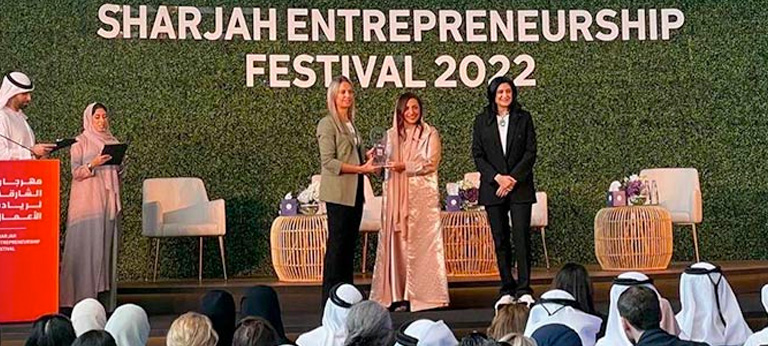Next generation charts new path towards strategic philanthropy
13 Oct 2022
USD210bln philanthropic giving continues to rise in the Gulf region
- Pioneering research shows that a new generation of Gulf philanthropists expect transparency, market-based practices and a strategic approach to giving.
- In emerging markets, over USD 5 trillion of intergenerational wealth is due to be passed to the next generation.
Philanthropic giving in the Gulf is estimated to be $210 billion annually and is expected to continue to grow. New research published by the Centre for Strategic Philanthropy at the University of Cambridge, in partnership with the LGT Venture Philanthropy, Alliance Magazine and Philanthropy Age, shows that as a new generation of Gulf philanthropists emerges, they are becoming increasingly mindful of the benefits of greater strategic focus to address root causes of societal challenges.
The report titled ‘Giving in the Gulf Cooperation Council (GCC): Evolving towards strategic philanthropy’ highlights the growing trend to seek sustainable, long-term systematic impact by embracing innovative, market-based practices and taking inspiration from other regions.
The pioneering study, which draws on literature and interview analysis with 32 philanthropists, experts, and professionals from across the region, aims to deepen knowledge about the motivations, practices, and trends in philanthropy in the Gulf and serves as a catalyst for further research, discussions, and collaborations to inspire more significant impact.
The report was launched in the presence of leading philanthropists and experts, including H.S.H. Prince Max von und zu Liechtenstein, Chairman of LGT and Founder of LGT Venture Philanthropy; Badr Jafar, CEO of Crescent Enterprises, Founder of the Pearl Initiative, and Founding Patron of the Centre for Strategic Philanthropy; H.H. Sheikha Intisar Al-Sabah, Founder of Intisar Foundation; Fadi Ghandour, Executive Chairman of Wamda Capital; Ayman Tamer, Chairman of Tamer Group; Mudassir Sheikha, CEO and co-founder of Careem; and Professor Mauro Guillen, Dean of Cambridge Judge Business School.
Uncovering 15 trends that illuminate philanthropy in the Gulf, the report’s findings suggest that philanthropists in the region increasingly aim to align giving with government priorities for national development, and the sector has benefited significantly from recent government policy in parts of the region to better regulate the sector. However, there remains a growing desire for data and evidence-based assessment to measure the impact of philanthropy, with many philanthropists engaging in collaborations to achieve greater impact.
Speaking in a panel session during the launch event, Badr Jafar, CEO of Crescent Enterprises and Founding Patron for the Centre for Strategic Philanthropy at the University of Cambridge, said: “As a new generation of philanthropists emerges that are embracing principles of strategic philanthropy that is more impact driven, we can expect philanthropy to play a greater role in shaping the future of our social and socio-economic landscapes in the years to come. This approach naturally demands more robust data and sound methodologies to inform and achieve impact.”
The study shows the challenges and opportunities within the Gulf philanthropic sector, where there is limited information and knowledge to support strategic philanthropy. “Due to limited data surrounding communities in need, giving activities and measurement strategies are leading to the rise of organisations actively investing in data compilation to benefit the sector”, said Badr Jafar. “Digitalisation is offering new opportunities to enhance philanthropy by enabling greater inclusivity of communities and donors, better insights and increased awareness which must be embraced to benefit all sectors and communities”, he said.
The report highlights the opportunities to maximise social impact by engaging in strategic giving. The majority of philanthropists interviewed during the study expressed their ambition to move towards strategic, structured, and institutionalised philanthropy underpinned by data and evidence-based methodologies for impact assessment.
“We have a very long history of charitable giving, and today an estimated USD 400 billion to 1 trillion is dispersed annually between Zakat and Sadaqa. The reality is we don’t always know where this huge pool of capital is going”, said Badr Jafar. “With around two-thirds of the population in the Middle East classified as either living below the poverty line or vulnerable to poverty, the indications are we are not optimising the use of this capital to address our most urgent challenges.”
The research was conducted by the Centre for Strategic Philanthropy at the University of Cambridge in partnership with LGT Venture Philanthropy, Alliance Magazine, and Philanthropy Age. The report ‘Giving in the Gulf Cooperation Council (GCC): Evolving towards strategic philanthropy’ is based on research, existing literature, and interviews with 32 philanthropists, experts, and professionals across the six Gulf countries: Bahrain, Kuwait, Oman, Qatar, Saudi Arabia, and the United Arab Emirates.



